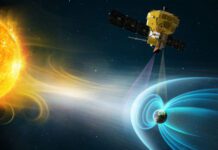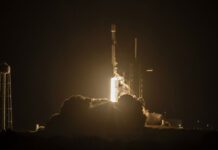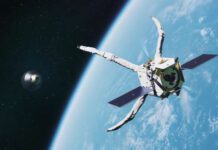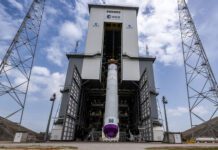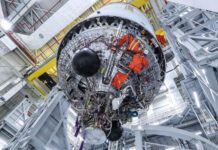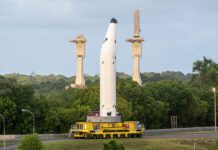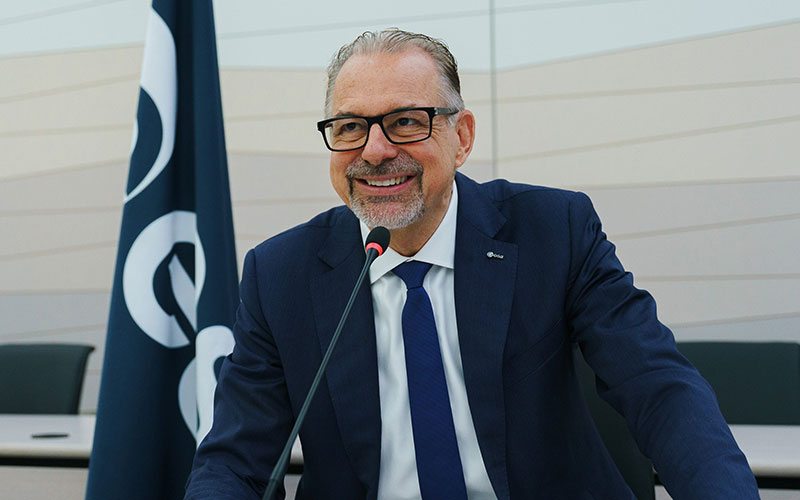
European Space Agency Director General Josef Aschbacher appeared to be tempering expectations for the maiden flight of Ariane 6 during a panel at the 39th Space Symposium. Aschbacher explained that the maiden flights of heavy-lift rockets have a 47% chance of experiencing a major anomaly.
The first Ariane rocket was launched on a successful maiden flight in December 1979. Since that flight, four other Ariane rockets have been launched on maiden flights, with two ending in failure. This, of course, doesn’t account for the numerous Ariane 4 variants, which all had successful maiden flights. The two Ariane rockets that didn’t ace their debuts are Ariane 2 and Ariane 5.
The maiden flight of Ariane 2 failed due to a third stage igniter issue, which resulted in the loss of Intelsat VA F-14. Ariane 5 self-destructed 37 seconds into its maiden flight due to a malfunction in its control software. The cause of the malfunction was later identified to have been caused by a subsystem that had been ported over from Ariane 4 and included control software that clashed with that managing the systems of Ariane 5.
Ariane 6 has somewhat of a head start on its maiden flight thanks to hardware it shares with Vega C. While the second flight of Vega C did end in failure, both flights featured the successful operation of the P120C booster, which is also utilized aboard Ariane 6. For its maiden flight, Ariane 6 will be launched in its 62 configuration, which employs a pair of the P120C boosters.
In addition to its boosters, the Ariane 6 core stage engine also has flight heritage. The core stage is powered by the Vulcain 2.1 engine, which is an upgraded variant of the Vulcain 2 engine utilized aboard the Ariane 5 ECA and ES variants, which flew a combined 92 flights. Over its tenure, the Ariane 5 ECA rocket suffered one failure and one partial failure. While the partial failure in January 2018 was not attributed to Vulcain 2, the rocket’s one failure in December 2002 was the result of a first stage engine anomaly.
The rocket’s second stage is powered by a single Vinci engine, the development of which began in the 1990s. Despite having been in development for the better part of three decades, it does not yet have any flight heritage. Additionally, a failed Ariane 6 second stage test in late 2023 leaves questions regarding its reliability unanswered.
The failed second stage test was conducted on 7 December and was aborted just 120 seconds into the planned 680-second test. The purpose of this test was to demonstrate the performance of the stage in degraded conditions. The investigation of the early abort was left to ArianeGroup. While the investigation was expected to have been completed by mid-January, the company has not yet published any details regarding its findings. Despite this, ESA has stated that the test pushed the stage beyond its normal flight profile and that it would “not operate in such a test configuration on the inaugural flight.”

